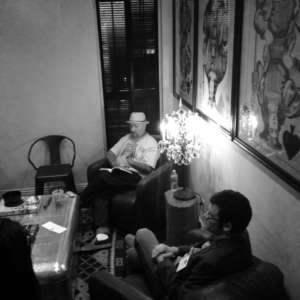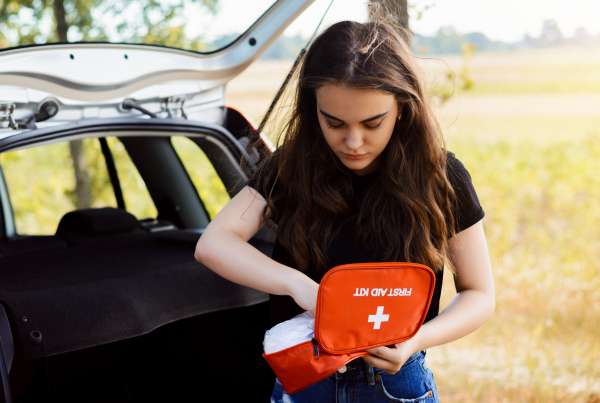Refuge Recovery is a non-profit, Buddhist oriented, non-theistic recovery program and Noah Levine’s latest book.
Refuge Recovery: A Buddhist Path to Recovering from Addiction was released on June 10, coincidentally the 79th anniversary of Alcoholics Anonymous. Noah Levine, M.A., whose story is already familiar to many in the recovery community, is also the author of the autobiographical Dharma Punx, the revolutionary meditation manual Against the Stream, and the reflections on the practice of loving-kindness Heart of the Revolution. He founded Against the Stream Meditation Society, which opened its doors in Los Angeles in 2008, and Santa Monica in 2009.
Refuge Recovery was birthed in direct response to the clear need for a viable, non-theistic approach to recovery. Noah, feeling disconnected from the 12 steps’ theistic philosophy, found deeper relief within the 4 Noble Truths and the 8-Fold Path of Buddhism. Many members of Against the Stream who were talking about similar difficulties pursued similar conversations. There was a need to shift the paradigm of 12-step recovery and open the door to an alternative path. Refuge Recovery doesn’t ask anyone to shift a belief system, nor does it require anyone to believe in something. It simply asks that you “trust the process and do the hard work of recovery.” You also don’t have to be Buddhist to participate.
The Four Truths of Recovery are:
1: We suffer due to our addictions and the general difficulties of being human in this world of constant change and loss.
2: Craving is a natural phenomenon; it is not our fault, but we are fully responsible for our healing and recovery.
3: We can fully recover and enjoy a life of sanity and well-being.
4: This is the path to recovery: the Eight-fold Path.
Refuge Recovery begins with the First Truth: addiction creates suffering. Understanding that addiction always creates suffering is crucial. Suffering is craving the next drink or drug. Suffering is the idea that you can’t get enough; Suffering is the loneliness and shame and isolation. Suffering is the desire for more pleasure and less pain, which we persistently seek in our addiction. Suffering shows its face in a multitude of maladaptive behaviors. Understanding this first truth and then accepting it as reality also means accepting that drink and drug aren’t an option any longer. Recognizing the multiple layers of suffering is encouraged through inventory work: “Without full acceptance and disclosure, recovery is not possible. We cannot skip this step; we must be thorough in our inventory process.” (page 6, RR)
The Second Truth asks you to do another inventory, this time seeking clarity and acceptance around the causative factors behind your craving. “The addict is not at fault for the root causes and conditions that lead to addiction, only for the habitual reactive patterns that perpetuate it.” (page 11, RR) More often than not, someone suffering from addiction is suffering from deep pain and dissatisfaction in their lives. Perhaps there is abuse, and drugs and alcohol help numb the pain; perhaps there is neglect, and drugs and alcohol make you forget. The reasons and root causes are many and they are varied, but they all lead to the same place: suffering.
The 8-Fold Path of Recovery directs us toward maintaining safety and creating a refuge from addiction. The Eight-Fold Path of Refuge Recovery is:
1: Understanding: We come to know that everything is ruled by cause and effect.
2: Intention: We renounce greed, hatred, and delusion. We train our minds to meet all pain with compassion and all pleasure with non-attached appreciation.
3: Communication/Commmunity: We take refuge in the community as a place to practice wise communication and to support others on their paths. We practice being careful, honest, and wise in our communications.
4: Action/Engagement: We let go of the behaviors that cause harm. We ask that one renounces violence, dishonesty, sexual misconduct, and intoxication. Compassion, honesty, integrity, and service are guiding principles.
5: Livelihood/Service: We are of service whenever and wherever possible. And we try and ensure that our means of livelihood are such that they don’t cause harm.
6: Effort/Energy: We commit to daily contemplative practices like meditation and yoga, exercise, and the practices of wise actions, kindness, forgiveness, compassion which lead to self-regulatory behaviors in difficult circumstances.
7: Mindfulness/Meditations: We develop wisdom by means of practicing formal mindfulness meditation. We practice present-time awareness in our lives.
8: Concentration/Meditations: We develop the capacity to focus the mind on one thing, such as the breath, or a phrase, training the mind through the practices of lovingkindness, compassion, and forgiveness to cultivate that which we want to uncover. (pages 24-26 RR)
What Refuge Recovery does is encourage practitioners to lean into their discomfort, investigate it, notice its impermanence, and begin to let it go. It encourages a deep shift in one’s relationship to suffering, creating an element of space around it, and it provides a unique ability to begin to care for your own suffering with compassion. Ultimately, we learn that we are not our suffering.
Refuge Recovery asks practitioners to know and understand that everything has a cause and effect and to take action to shift toward making better, wiser choice. Our actions are never without a reaction, good, bad or indifferent.
Refuge Recovery has been a deep, grounding cornerstone of my own recovery for the last 6 years. It has profoundly shifted how I view my own difficulties and allowed me to come to a deep understanding of how to hold my pain with compassion and approach my difficulties with kindness. It’s exciting to see this work come to fruition and to have been involved in the Refuge Recovery movement since its inception. I have been fortunate to witness the efficacy of Refuge Recovery for those who are just getting sober and for those with long-term sobriety, proving to me that this method works. It’s also been a wonderful alternative for clients struggling with the 12-step model; these same clients have embraced the Refuge Recovery process, finding relief from their suffering and formed a solid foundation of recovery and service.
There are regular Refuge Recovery meetings in Los Angeles, Santa Monica, Oklahoma City, Santa Cruz, San Francisco, and Nashville. See HERE for a complete list with times and locations. If one isn’t in your area, you are encouraged to start your own. You can download meeting formats and Refuge Recovery inventories and meditations at RefugeRecovery.org. In addition, BLVD Treatment Centers is offering the first Refuge Recovery track for adults in treatment. There is also a Refuge Recovery sober living that has recently launched, that is has created a sober living environment in coordination with the Refuge Recovery Model.










One Comment